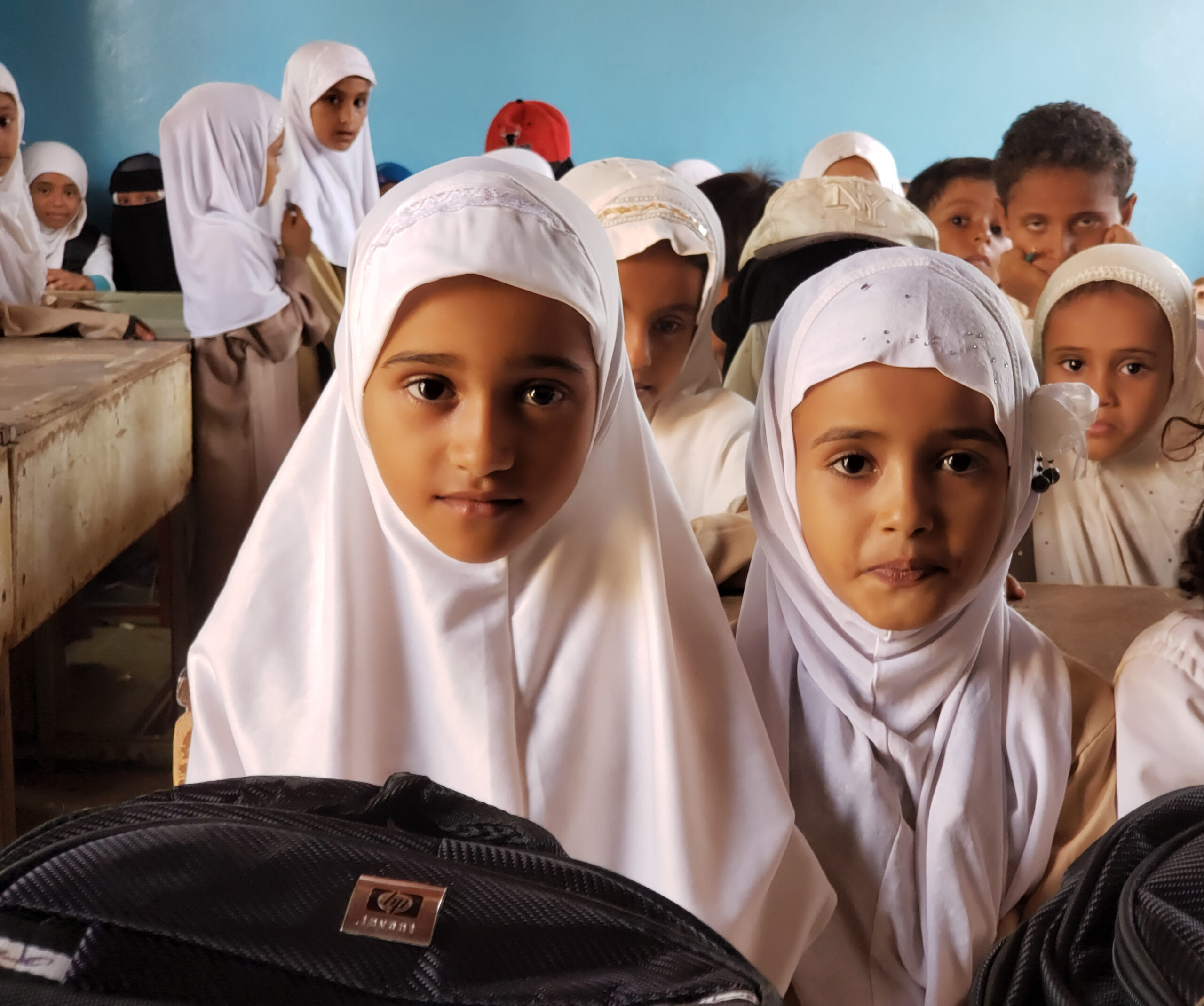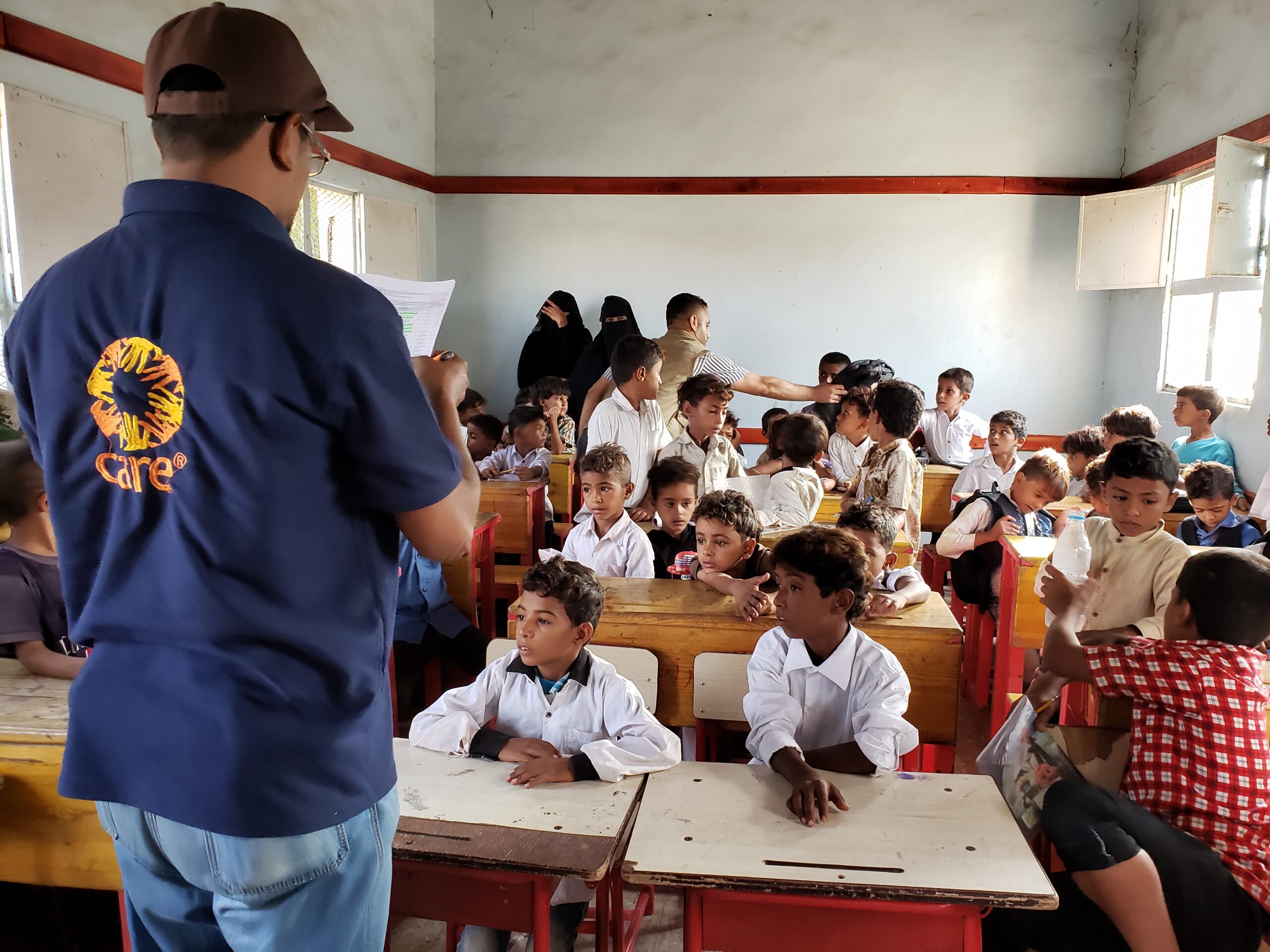Once upon a time, a few months before the armed fighting erupted in Yemen, a beautiful girl with an angelic face was born in a faraway district of Hodeidah governorate, Yemen’s principal port on the Red Sea. As the years passed and the conflict lengthened, the young baby grew into a thoughtful six-year-old named Abrar. With honey-coloured skin and warm brown eyes, Abrar looks as sweet as chocolate and as solid as the oak.
To Abrar’s surprise, her parents tell her that nearly six years ago there was no fighting in Hodeidah. Neighbours and family members used to live here before they were forced to flee for their lives. Abrar’s young memory can’t recall that time.
Abrar always wonders what a world without fighting would look like. She thinks to herself: mothers and their young children wouldn’t have to walk along risky roads under the sun’s heat to fetch water. And parents, like my father and my teachers, would have a stable salary or income to provide for their families.
Unluckily for Abrar and other Yemeni children, they are trapped in the largest humanitarian crisis in the world. The cumulative impact of conflict and COVID-19 has almost devastated the health and education system in the country. Only two-thirds of schools are currently operating, leaving one-third of all school-age children out of school even before closures due to COVID-19. Malnutrition, as well as cholera, dengue, malaria and diphtheria, has been threatening Yemeni children’s wellbeing and growth for many years.
One exciting day, Abrar’s parents woke her up early in the morning and asked her to get dressed. Her mother gave her a beige uniform and a white scarf to wear. She asked her parents where she was going. They said it was to a place she would love – to school. Since her first day in Khawlah school, Abrar thought it looked like an abandoned castle from a fairy tale; the ceiling and the walls were crumbling, and the classrooms were dark, cold and empty. There were no toilets or water in the school. Despite all of that, the school was overcrowded with children who studied without desks, chairs or boards.



